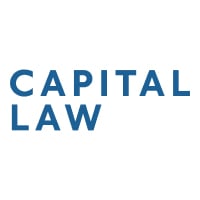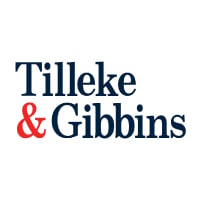

Head of legal | Pi Securities






Suthatip Sridetprasart
Head of legal | Pi Securities
What strategies do you employ to ensure the successful digital transformation of a legal department while maintaining compliance with your country’s data protection laws?
The Legal Department developed standardized contract templates for a large enterprise to streamline its contract management process. This project involved identifying key clauses, ensuring legal compliance, and training staff on new templates. The standardized templates reduced the time and cost associated with contract negotiations, enhanced consistency, and mitigated legal risks.
The implementation of the Personal Data Protection Act (PDPA) in Thailand, which closely mirrors the EU’s GDPR, has significantly impacted our legal work, particularly in data privacy and protection. Assisting clients in developing and implementing comprehensive data protection compliance checklists has become a major focus. This includes conducting data audits, drafting privacy policies, and setting up data protection management systems.
We have also organized extensive training sessions for our employees to ensure their employees understand the new data protection requirements and the importance of compliance with the PDPA. Providing ongoing legal advice on data protection issues, including handling data breaches, data subject rights, and cross-border data transfers, has become a critical part of our service offerings.
Furthermore, we are making every effort to leverage IT mechanisms to evaluate individual team members’ performance. We are also developing a program aimed at continuously increasing operational efficiency within the legal department. This involves enhancing alignment with corporate strategies, documenting control processes, and utilising technology to automate workflows. Ultimately, this will provide valuable insights and allow us to measure performance effectively using key performance indicators (KPIs).
Have you had any experiences during your career as a lawyer that stand out as particularly unique or interesting?
As the Head of Legal at Country Group Holdings PCL, I played a key role in every step of the Offshore acquisition of a company focused on solar farms and greenfield energy projects. This was a major step for our company, aligning with our goal of investing in renewable energy for long-term growth and sustainability. The process wasn’t simple dealing with tax implications, structuring the company, and navigating international laws and regulations added layers of complexity, but it was a challenge I was excited to take on.
The fact that this was an offshore deal made the process even more demanding. Managing differences in legal frameworks, coordinating with foreign regulatory authorities, and ensuring compliance across jurisdictions require careful planning and attention to details. My job involved not only managing the legal side of the deal but also hiring and overseeing a law firm to handle critical tasks and provide expertise in areas where local knowledge was essential.
A big part of my role was overseeing how we structured the deal. The law firm provided advice on the best way to set up the transaction to meet both legal requirements and our business goals. I ensured that the structure complied with all regulations in multiple jurisdictions while also aligning with our strategic vision for the future.
During the due diligence phase, I coordinated closely with the law firm to gather and review all the necessary information about the target company. This included preparing requests for information, identifying risks through a detailed review, and participating in management interviews. The findings were compiled into a red-flag report, and I used this to advise our leadership team on how to address key issues effectively.
Drafting and reviewing agreements like the Share Subscription Agreement (SSA) and Shareholders’ Agreement was another crucial part of my responsibilities. I worked alongside the law firm to ensure these documents covered all the important details, protected our company’s interests, and accounted for the added challenges of an offshore transaction. Negotiating terms that accounted for cross-border risks and ensured a smooth transition post-acquisition was a priority.
I also took the lead in addressing tax implications and making sure the company structure as a holding was optimised for our long-term financial and operational goals. This involved working with tax advisors, financial experts, and the legal team to find the right balance between compliance and achieving our objectives.
Throughout the process, I acted as the main point of contact between our internal team, the law firm, and other key stakeholders, including foreign regulators. Coordinating across time zones, legal systems, and cultural differences made this project particularly challenging but also rewarding. Although the deal is still awaiting final approval, I’m proud of the progress we’ve made. This project not only demonstrates how renewable energy investments align with both business goals and environmental responsibility but also highlights the complexities and rewards of successfully navigating an offshore transaction.
What do you think are the most important attributes for a modern in-house counsel to possess?
Success in an in-house legal role demands a unique combination of skills that extend beyond conventional legal knowledge. While legal expertise remains a fundamental requirement, thriving in a corporate environment involves integrating legal acumen with strategic business insight and interpersonal effectiveness.
First and foremost, a strong foundation in legal knowledge is essential. In-house counsel must be proficient in key areas such as contract law, corporate law, and regulatory compliance. However, what sets in-house roles apart is the need to understand the business deeply. This means gaining insight into the company’s industry, operations, objectives, and the challenges it faces. Effective legal counsel requires the ability to align legal advice with the overall business strategy, ensuring that legal guidance not only mitigates risk but also supports the organization’s growth and sustainability.
Problem-solving is another critical skill. In-house lawyers often face complex and multifaceted issues, and the ability to analyse these situations and devise practical, business-friendly solutions is vital. Being proactive and resourceful enables legal teams to anticipate potential problems and address them before they escalate.
Equally important are strong communication skills. In-house counsel must be able to translate complex legal concepts into clear, concise language for non-legal stakeholders. Whether advising senior management or collaborating with colleagues from different departments, effective communication fosters understanding and informed decision-making. Additionally, negotiation skills and the ability to present arguments persuasively play a key role in achieving favorable outcomes.
In sum, excelling in an in-house legal role requires a well-rounded blend of legal proficiency, business acumen, communication, and strategic foresight. It is this holistic approach that enables in-house counsel to serve not just as legal advisors, but as integral partners in the success and sustainability of the business.
Head of legal | Pi Securities
Head of legal, risk and compliance | Purple Ventures